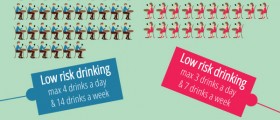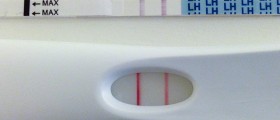
Most of us don't want to get pregnant at 16, and all it takes is one egg per baby (unless you have identical twins). So, here's a positive take on pregnancy after 35 for a change. How can you increase your chances of getting pregnant? I hate to be repeating myself, but the same tips we usually give to any woman who is trying to conceive apply to you as well. They are eat healthily (quality is much more important than the number of calories), work out regularly, and lead a generally healthy lifestyle. Smoking and drinking are out when you are trying to get pregnant, and that goes for your partner too.
Before you think it's unfair that women's fertility goes down the drain as we get older while men can impregnate their partners until the day they die, that's not actually true. Age also affects a man's sperm count, but regardless of his age your partner should be doing the same things you do to increase fertility. This also includes folic acid yes, you saw that right, men who are trying to conceive benefit from folic acid as well! Finally, there's getting to know your menstrual cycle, and in particular your ovulation. There are a variety of tools to track your most fertile days, including an ovulation calendar (you can sign up for the one on our blog, it's the big pink thing to your right!), ovulation tests, charting to conceive, and listening to your bodies signs. Once you know when you ovulate, plan to do the deed accordingly. If you are not pregnant within a year, you may want to head to your doctor.

















Your thoughts on this
Loading...